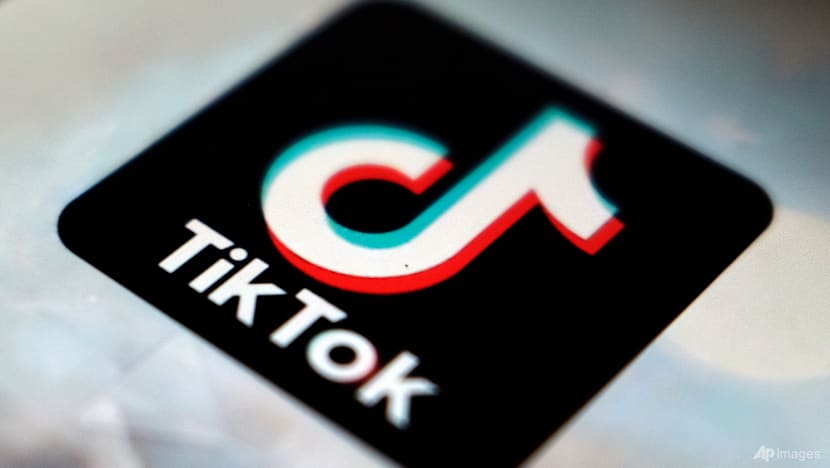With US-China tensions back on the upswing, is the TikTok deal at risk?
Analyst opinions are mixed on the viability of the deal for TikTok's US ownership, with "everything on the table" after recent flare-ups.

The TikTok app logo appears in Tokyo on Sep 28, 2020.(File photo: AP/Kiichiro Sato)

This audio is generated by an AI tool.
A tentative deal for the management of Chinese short video app TikTok in the United States is facing new pressure after last week’s flare-up in trade tensions between Beijing and Washington, with analysts mixed in their assessment of the pact’s chances for survival.
“It’s probably quite hard to see that (deal) happening under such an atmosphere,” said Gary Ng, senior Asia-Pacific economist at Natixis.
“I don’t know whether it will collapse or go through … The biggest downside is the US could shut (the app) down and block access.”
A flurry of activity in recent weeks from both sides of the divide, most notably a widening of Beijing’s export controls related to rare earth elements - itself a response to the expansion of a US trade blacklist - and a subsequent threat from US President Donald Trump of an additional 100 per cent in tariffs on Chinese imports, has exacerbated the already strained ties between the world’s two largest economies.
And while the TikTok deal was not mentioned explicitly in the back-and-forth, these incidents and other flashpoints in the bilateral relationship could prevent the agreement from being finalised.
More complications arose on Tuesday, when China and the United States began implementing new port fee structures on each other’s ships and Trump took to social media to warn he was considering a halt to imports of Chinese cooking oil.
Analysts said the agreement reached on Sep 15, the public details of which remain scant, is still fragile and may take longer than expected to be ratified if tensions keep rising.
Under the proposed terms, TikTok would operate under US ownership led by a consortium of investors including American software developer Oracle, with Chinese operator and current owner ByteDance retaining a 20 per cent stake.
In a statement following a Sep 19 phone call between Trump and Chinese President Xi Jinping, Beijing’s Ministry of Foreign Affairs included a passage on the issue, saying the country “respects the wishes of the company in question, and would be happy to see productive commercial negotiations in keeping with market rules lead to a solution that complies with China’s laws and regulations and takes into account the interests of both sides.
“The US side needs to provide an open, fair and non-discriminatory environment for Chinese investors.”
Mark Natkin, managing director of Hong Kong-based market research firm Marbridge Consulting, said the statement’s language suggested even at that time Beijing viewed the deal as unfinished.
“The newest ramp-up of tensions will put an even bigger drag on the chances of winning Beijing’s approval.”
The White House has also issued statements defining its stance, writing in a Sep 25 executive order that the deal would constitute a “qualified divestiture”, allowing Americans to keep using the app while protecting user data and national security.
The order said the proposed agreement would put the operation of the algorithms and code – as well as content moderation decisions – under the control of a new joint venture controlled by US persons, but did not offer further details.
The US has extended the deadline for TikTok to divest or be shut down on several occasions, with the grace period now running until Dec 16. The Sep 25 executive order stated the US Attorney General would not take any action regarding the app over the subsequent 120 days.
At stake are about 170 million American TikTok users, some of whom have voiced concerns about the impact a restriction of the app would have on free speech and the platform’s role in shaping social issues.
China’s current position is “hard to assess” because the fine print has not been publicised, said Alfredo Montufar-Helu, managing director at advisory firm GreenPoint.
“The exact terms and conditions reflected in whatever agreement is reached on TikTok are not known, and so it’s uncertain if the deal is in jeopardy,” said Beijing-based lawyer James Zimmerman.
“But given the current state of relations, everything is on the table and nothing is immune to being retracted, altered or otherwise taken back.”
Beijing and Washington held “working-level talks” on Monday despite the recent spike in tensions, according to China’s Ministry of Commerce, with communication continuing under a framework built during trade negotiations earlier this year.
“Softer language” from the two powers should reduce any threat to the TikTok accord, Montufar-Helu said, adding this “signals they really want to avoid escalating to a point of no return”.
“Of course (the TikTok deal) is more fragile than before, but in terms of probabilities, I think it is more likely than not that the deal will go on. I don’t think it’s going to fall through,” Montufar-Helu said.
This article was first published on SCMP.



















